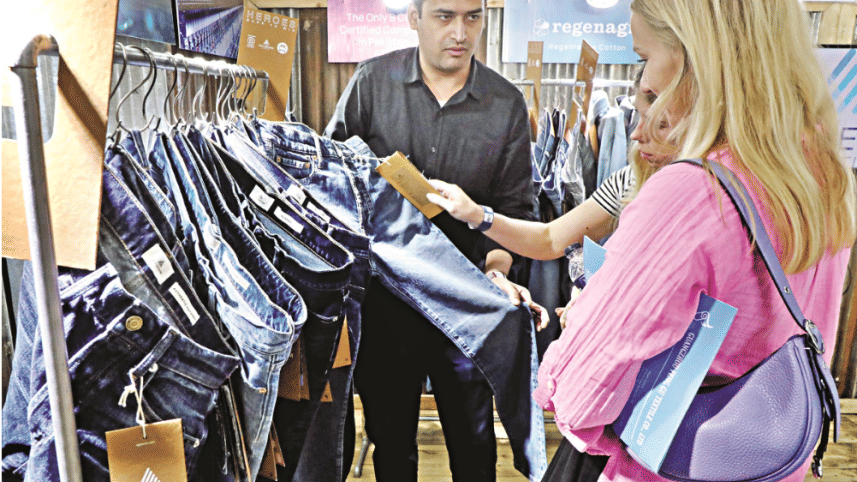RMG work orders may rebound next season

There could be a strong rebound in the inflow of work orders for garment items from international retailers and brands in the coming seasons as the global economy is slowly making improvements from sluggish trends while the country could witness stability, buyers said.
Shipments of garment items to European countries and the US had been falling in recent months because of high inflation in those regions stemming from the severe fallouts of the Covid-19 pandemic and the Russia-Ukraine war.
The sale of clothing items in the Western world was also falling as old inventories had remained unsold, for which fresh demand was not being created among the retailers and brands.
With just around one and a half months to go before this year ends, the upcoming spring and summer seasons will begin around April and by that time political stability is expected to be restored while labour unrest dissipated.
This is owing to the next general election due to be held in January next year and for wage rates of garment workers having been hiked recently.
Bangladesh will remain a very important sourcing destination for H&M, the single largest sourcing company for locally made garment items, said Ziaur Rahman, regional country manager for Bangladesh, Pakistan and Ethiopia of the Swedish retail giant.
Bangladesh has also been receiving a fair share of the garment work orders which are being diverted from Myanmar for different reasons, he said.
H&M will pay higher prices for garment items sourced from Bangladesh in tune with the wage hike, assured Rahman.
However, he declined to state the exact percentage at which the price would be increased.
Stability is important, he said while visiting a 15th Bangladesh Denim Expo opening at International Convention City, Bashundhara in Dhaka yesterday to showcase denim items, machinery and accessories.
If the brands are here, the business will also take place, said Ismail Kabasakal, sales manager of Yilmak Makina San, a Turkish manufacturer of textile washing, dyeing and dryer machines.
Of all the sales that his company makes, some 70 percent takes place in Bangladesh, he said.
This year business was not as good as that in the past year as Bangladesh faced some political and economic problems but the year 2024 may be good, he hoped.
Amy, sales manager of Zhejiang Kafute Textile Company Ltd, a Chinese denim fabrics seller, echoed Rahman and Kabasakal.
Ultimately Bangladesh is still in the minds of the buyers as their sourcing destination, Faruque Hassan, president of the Bangladesh Garment Manufacturers and Exporters Association (BGMEA), told The Daily Star at the venue.
However, recently the inflow of work orders has slowed down because of political and labour unrest, he said.
The retailers and brands are holding back on placing the work orders as they are observing the situation, he said.
They are expected to come with the full volume of work orders after the general election next year as political stability will also be restored, said Hassan.
Since the wage rates have been hiked, the labour unrest is expected to dissipate soon, he said.
Bangladesh is the second largest apparel exporting country but in case of denim, it is the largest, coming ahead of China, both to the European Union and US, said Commerce Minister Tipu Munshi while inaugurating the two-day exposition.
"Denim and denim related products account for about one fourth of Bangladesh's total apparel export. So, to attain the $100 billion apparel export target, the country has to double its denim export by 2030," said Siddiqur Rahman, the former BGMEA president.
A total of 80 exhibitors from 12 countries are participating in the fair, said Mostafiz Uddin, founder and managing director of Bangladesh Apparel Exchange, which organised the event.
About 5,000 visitors from home and abroad have registered to attend the fair. SM Mannan Kochi, senior vice president of the BGMEA, also spoke.




 For all latest news, follow The Daily Star's Google News channel.
For all latest news, follow The Daily Star's Google News channel.
Comments